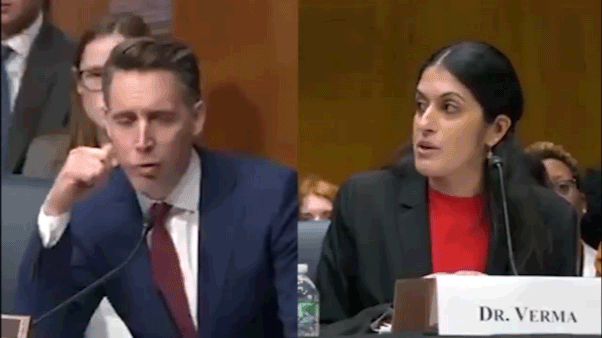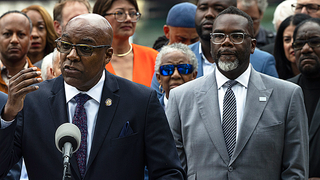One Democratic senator fighting for health care reform said Sunday she "absolutely" would vote against the health care bill being debated in the Senate if it increases out-of-pocket costs for people and drives up the debt.
But Sen. Claire McCaskill of Missouri said she doesn't think that is going to happen because President Obama would also reject such a bill.
"My statement all along is it has to slow down the increase of health care costs over time, and that is bending the cost curve, and secondly, that it has to be deficit neutral," McCaskill said on "Fox News Sunday.
"We have to be saving more money for our government than we're spending. And if we're not saving more money for our government than we're spending, then not only will I not support it, the president said he won't support it," she added.
Senators are awaiting new cost estimates on the latest overhaul proposed last week by Majority Leader Harry Reid. Reid has sent his ideas to the nonpartisan Congressional Budget Office, which provides an analysis on spending proposals.
The key component of Reid's bill would allow Americans age 55-64, roughly 34 million people, to buy into Medicare. Those who don't could buy into a private plan negotiated by the government similar to what federal workers get.
McCaskill said everything is "on hold" until the CBO's numbers come back. CBO's results are used by lawmakers to determine whether a bill is financially doable.
Democrats need all 60 members of its caucus, including two independents, to pass health care reforms. Reid has pushed for a Christmas recess deadline for trying to pass legislation.
But Sen. Judd Gregg, R-N.H., who appeared with McCaskill said the Centers for Medicare and Medicaid Services, another independent agency, has already demonstrated that the bill currently under consideration is going to cost more than was originally predicted.
"It's not going to bend the health care price down. It's going to push more people out of private insurance and into whatever public plan ends up being the vehicle," Gregg said. "It's going to cut Medicare by $500 billion, approximately, in the first 10 years, $3 trillion over the next 20 years. That money's not going to be used to stabilize Medicare. That money's going to be taken to create a brand-new major entitlement.
"So as a very practical matter, this bill at its core has some huge problems. It expands the size of government by $2.5 trillion. I think American common sense is kicking in here,Gregg said, adding that Medicare is already bankrupt so adding more people to the program "is going to simply aggravate the bankruptcy of the program which is coming at us."
McCaskill said both CMS and CBO said Medicare's life will be extended, even though the CMS actuarial analysis was incomplete.
"Overall, it did say we're going to bring down taxes and costs for middle America. It did say we're going to extend the life of Medicare. But this is all a work in progress. We are up to our elbows in sausage-making right now," she said.











































